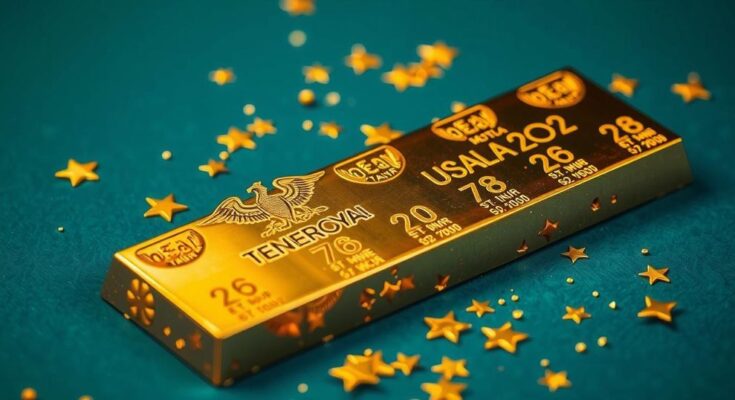Dele Alake, Nigeria’s Minister of Solid Minerals Development, has pointed out the illegal export of Nigerian gold to the UAE, expressing concerns over its impact on economic partnerships. He advocates for stronger trade relations and collaboration in the mining sector, alongside the establishment of regulatory frameworks to curb illegal activities. The UAE Ambassador reaffirmed his country’s commitment to bilateral relations, highlighting upcoming initiatives to boost investment and address illegal mineral trade.
Dele Alake, the Minister of Solid Minerals Development, has recently highlighted the illegal exportation of Nigerian gold to the United Arab Emirates (UAE). During a meeting with Ambassador Salem Al Shamsi, the UAE Ambassador to Nigeria, he voiced concerns over the substantial volume of this illicit trade, which ultimately hinders potential economic partnerships between the two nations. Alake argued for enhanced trade relations that focus on solid minerals as a pathway to address this issue. He remarked upon the more than 50-year history of strong ties between Nigeria and the UAE, suggesting the need for deeper collaboration in the mining industry. “In the mining sector, we see significant opportunities for collaboration. While there is considerable trade in gold, much of it remains illegal, with a large portion of Nigerian gold ending up in the UAE unlawfully,” he stated. The minister expressed the necessity of developing strategies to mitigate the illegal gold trade and encouraged establishing a regulatory framework that would legitimize this commerce, benefiting both countries economically. He pointed out Nigeria’s abundance of valuable minerals and the potential for the UAE, as a prominent mineral trading hub, to benefit from a strengthened partnership in this sector. Furthermore, Alake indicated a desire to collaborate with the UAE on technology transfer to enhance Nigeria’s mining capabilities. In response, Ambassador Al Shamsi reiterated the UAE’s commitment to furthering its longstanding relationship with Nigeria, also mentioning the recent easing of visa restrictions and the signing of a Memorandum of Understanding between UAE enterprises and Nigeria through the Solid Minerals Development Fund. He stated, “The lifting of visa application restrictions and the launch of a new visa application website demonstrate my country’s dedication to advancing bilateral relations.” Additionally, Al Shamsi announced an impending Nigeria-UAE economic forum, aimed at increasing foreign direct investments in Nigeria, which will feature the participation of major Middle Eastern companies. To tackle the issue of illegal mineral trade while fostering legitimate commercial relations, both nations agreed to form a technical committee to explore strategies for collaboration.
The discussion surrounding the illegal exportation of gold from Nigeria to the UAE emerges from a broader context of economic partnership and trade relations between the two nations. Nigeria has a rich reserve of solid minerals, and the illicit trade of gold represents a significant loss of potential revenue for the country. The UAE serves as a major hub for mineral trade, making this relationship pivotal in addressing trade legality and economic cooperation. Establishing legitimate pathways for mineral trade could bolster Nigeria’s economy, promote regulatory compliance, and enhance technological advancements in its mining sector.
In conclusion, Minister Dele Alake’s statements regarding the illegal smuggling of gold from Nigeria to the UAE underscore a critical challenge that hinders economic cooperation. The proposed strategies for establishing legitimate trade relations and regulatory frameworks signal a potential shift towards enhancing trade partnerships. Both countries demonstrate a commitment to addressing illegal mineral trade and promoting mutually beneficial economic growth through collaborative efforts.
Original Source: punchng.com




